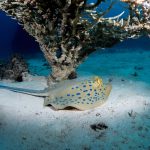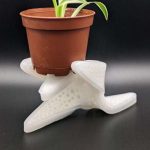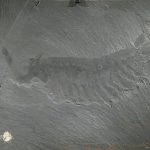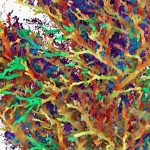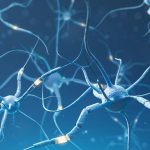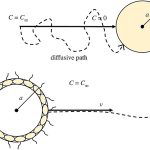Scientists uncover the secret behind the electric blue spots of the Ribbontail Ray
Researchers have unveiled the mystery behind the electric blue spots of the bluespotted ribbontail ray (Taeniura lymma).
These discoveries could lead to developing chemical-free colors...
Scientists create amazing shape-shifting material inspired by starfish
Researchers have developed a flexible yet sturdy material that can change shape, inspired by the starfish's skeleton.
This new material, which shows 4D morphing features,...
Small oxygen boost may have triggered major evolutionary leap
New research suggests that a small increase in Earth's oxygen levels could have triggered the Cambrian explosion, a rapid burst of evolution that occurred...
What makes a good tree? We used AI to ask birds
Grassy box gum woodlands once covered millions of square kilometers in southeastern Australia, but today less than 5% remains.
The loss of large old trees...
How our memories last a lifetime: New study reveals key molecule
Ever wondered how we remember things from our childhood, like our first trip to the zoo or learning to ride a bike?
A new study...
Exceptionally preserved trilobite fossils revolutionize understanding of ancient marine creatures
Scientists have uncovered some of the most well-preserved trilobite fossils ever found, offering new insights into these ancient marine creatures that lived over 500...
Giant clams may hold the answers to making solar energy more efficient
Solar panel and biorefinery designers could learn a thing or two from iridescent giant clams living near tropical coral reefs, according to a new...
Scientists discover how harsh snowball earth kick-started complex life
For a billion years, the Earth was dominated by single-celled organisms known as eukaryotes.
Then, around 700 million years ago, during a period called Snowball...
Scientists discover stingrays’ essential role in shaping estuaries
A new study has uncovered the significant impact stingrays have on estuaries, revealing that these threatened creatures in Brisbane Water, New South Wales, move...
Scientists map the genome of the last wild horse species
Researchers from the University of Minnesota have achieved a significant milestone by mapping the complete genome of the Przewalski's horse, the last wild horse...

